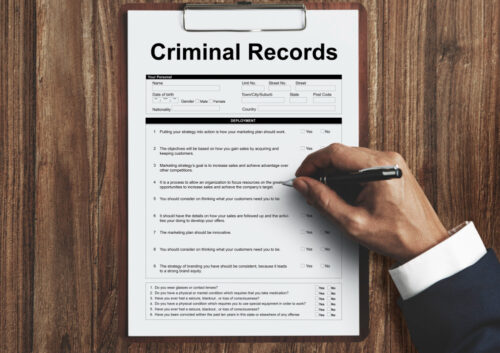So, I’ve been thinking a lot lately about the near canonization required for one to obtain an expungement or other relief once charged with a crime. There are often expungement remedies for misdemeanor offenses built into plea agreements for those with no prior criminal history. Still, when the offense charged is a felony, there are hardly any remedies. Say a felony case is dismissed without prejudice (which is most often the designation of a charge that is being dismissed for some evidentiary problem) — those charges are not “expunge-able” under current law except under certain rare circumstances, which sucks. you end up with a bunch of innocent people who agree to a dismissal rather than risk going to trial, because at trial, well… who knows what will happen. Juries get it wrong sometimes. A lot of times.
Reasonable doubt has gone by the wayside, and many juries see it more as a “more likely than not” equation. and this same degradation can be seen in the way people use the term “innocent,” as if it can be spared only for those who spend years in prison after being wrongfully convicted, only to be exonerated by DNA. Unfortunately, there are many other ways that cases go bad, and after they do, the reliability on justice is lost. To me, at least. And to a lot of people who are not truly guilty of a crime but can’t take the chance of being sent to prison by a rogue jury when offered a literal get-out-of-jail-free card in exchange for having the charge show up as “dismissed without prejudice” on a criminal history report.
Some of them will actually go on to apply for student aid, or housing assistance, or a job as a grocery clerk, and they will not be given a chance. The “segregation of records” requirements are certainly more lenient, allowing for arrest and other records to be kept separate from public records and accessible only by specified parties involving and within the judicial system. The downside of segregation is that there are plenty of organizations that apparently can navigate straight into a loophole and gain full access to an entire history of records, segregated or not. So, it’s not fail-proof by any means.
The only answer (in my humble opinion) is to have a way of truly segregating records in a manner that allows a person to move on with his or her life, but allows for access to and knowledge of the conviction by the defendant, the clerks, prosecutors, and judges. There is simply no reason this can not be done, though it will (guess what) cost money. I have no easy answer to that, as it doesn’t make much sense to charge the person money who has had the case against them dropped, even though a hefty fee is charged for expungement.
What does make sense is helping people get their foot in the door — not tripping them on their way in. Remember, I am not talking about people with long criminal records or just two past offenses. This is for the mom who thought she could get to the bank in time to cover a check, or the kid who was in the back seat of a car he didn’t know was stolen. I don’t feel the need to ban them from a productive society when we already have so much of society voluntarily being unproductive. So let’s get on with it.


